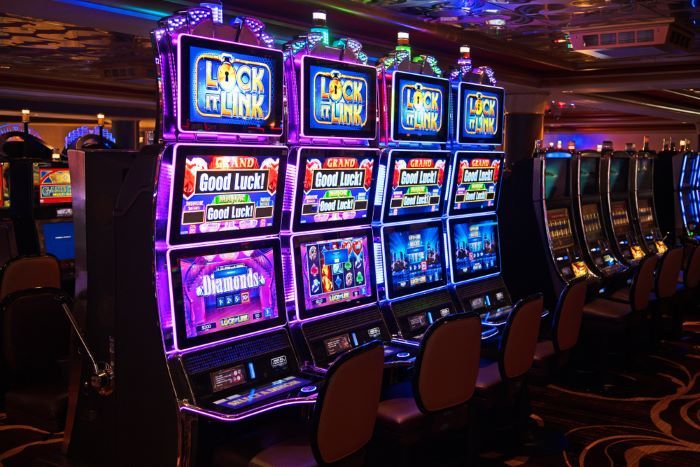NFT
What is Staking an NFT?
May 09, 2022
What is Staking an NFT? When it comes to NFTs, people almost always think of them as digital art and collectibles whose value can increase over time.
This is true for most NFT projects, but as the market continues to grow, artists, entrepreneurs, and collectors are looking for new uses. One of the promising uses of NFT is "staking" - storing a collection in a pool and receiving rewards from the pooling platform.
In this guide, we'll look at what NFT wagering is, how it works, what types of rewards holders can get, and which are the best wagering platforms.
Check this article "What is the Gambling NFT world?"
What is Staking an NFT?
NFT wagering is the locking of tokens into a platform or protocol in exchange for wagering rewards and other benefits. NFT pledging allows owners to receive revenue from their collection while retaining ownership.
In the cryptocurrency world, NFTs are becoming trendy. They are indivisible smart contracts, typically based on the Ethereum network, using the ERC721 token standard, meaning each token is unique. These tokens, like cryptocurrencies, are stored in a blockchain and can be used to authenticate the ownership, authenticity and provenance of almost any physical and digital object, including artwork, avatars, video files, GIFs, trading cards, video game assets and more.
Much of the hype around NFTs is due to the fact that they could revolutionize art collecting. Many of the NFTs that make headlines are art-related. For example, digital artist Beepple made history in March 2021 when he sold his work Everydays: the First 5000 Days for $69 million at a Christie's auction. This event was one of the first milestones that accelerated NFT's meteoric rise.
NFTs have also found their place in blockchain-based games and GameFi projects. Cryptographic "Play to Win" games use NFTs to allow players to prove ownership of the virtual items they collect in games like Axie Infinity, Gods, and Illuvium.
The uniqueness of NFTs makes them ideal for holding and HODL strategies, though it can take a long time for such long-term investments to become a reality. NFTs are not without drawbacks: the process of mining, buying and selling NFTs can be resource intensive, sometimes requiring high transaction fees, especially in Ethereum. There is also uncertainty as to whether NFTs will actually increase in value over time.
Pledging NFTs offers collectors a new opportunity to monetize their NFT collections. It has become a new way to generate passive income in the cryptocurrency world. HODLers who bet on NFTs lock their assets into decentralized funding (DeFi).

Decentralized Financing (DeFi) takes the decentralized concept of blockchain and applies it to the world of finance.
Its concept is similar to DeFi yield farming, an investment strategy that involves lending cryptocurrency or pledging money to providers to get rewards in the form of transaction fees or interest. This is similar to receiving interest from a bank account, but without an intermediary facilitating the transactions and receiving their cut.
The arrangement involves "locking" tokens in a digital wallet to maintain transactions and the security of the blockchain network in exchange for remuneration. Platforms that support tiering typically use proof of stake (PoS).
The blockchain relies on a global network of transaction validators that ensure the security of the network by authenticating transactions before adding data to the new blockchain. These validators (also called miners) are rewarded in the blockchain's native cryptocurrency for making their resources available to the network.
In power-intensive proof-of-work (PoW) blockchains, such as Bitcoin, resource validators must allocate their computing power, which requires a lot of electricity and expensive specialized equipment.
PoS improves on the competitive approach of the PoW model by requiring far fewer computational resources to validate transactions and protect the network. Users who wish to become validators simply need to make a "request" or pledge in the blockchain's native cryptocurrency.
Check this article "What are the NFT Photography Marketplaces?"
How Staking work?
The blockchain protocol blocks funds in a betting pool and then randomly selects validators to "mine" or validate blocks of transactions. The more funds a participant deposits, the higher the probability of being selected.
Each time a new block is added to the chain, new tokens are generated and distributed to the validators as a reward for betting. A number of factors determine the amount a validator receives as a reward for betting, including the number of coins wagered, the duration of active betting, the number of coins in the network, the level of token inflation, etc.

By pledging their coins and becoming validators, coin owners can use their unused assets to generate rewards and passive income. The cryptocurrency protocol is also secure and users' transactions are validated. Everybody wins. Users who bet on their coins always own their assets and can remove them from the betting pool at any time, subject to the terms of the cryptocurrency protocol.
Betting on NFTs works in a similar way, as NFTs are essentially tokenized assets. Users can lock their NFTs into certain storage platforms and receive rewards based on a certain annual percentage yield (APY) and the number of NFTs wagered.
It is important to note that as with cryptocurrencies, not all NFTs can be used to receive rewards. Different projects have different requirements, so check the terms and conditions of your chosen project before purchasing an NFT.
Reward
The type of remuneration NFT holders can receive for betting on their collection depends on the platform used and the type of NFT being bet on. Most platforms that allow users to bet on NFTs offer daily or weekly rewards. The reward for the wager is usually issued in the form of a token of local utility, which is often listed on an exchange and can be exchanged for other cryptocurrencies or fiat currency.
Some betting platforms have a decentralized autonomous organization (DAO) where NFT holders can block their assets in the DAO.
A decentralized autonomous organization (DAO), which is an open source blockchain, is defined by a clear set of rules,...
pool to participate in the governance of the platform and vote on future proposals.
Since the majority of the NFT market is in-game NFTs, most betting opportunities can be found on game platforms such as Axie Infinity, The Sandbox, Polychain Monsters, Splinterlands, and others. In the next section, we'll take a look at some of the best NFT betting platforms.
Is NFT Staking a good Investment?
The concept of the NFT tariffs is still at an early stage of development. Naturally, liquidity is a big issue for NBFs, partly because of the undeveloped ecosystem, but also because most NBFs are bought with the intention of being used as a long-term investment. However, the buzz around NFTs has sparked the interest of new crypto-investors looking to explore and potentially profit in NFT platforms.
NFT warehousing may not yet be as popular as cryptocurrency warehousing, but it has great potential for growth in the near future, especially when Eth2 successfully transitions to the PoS mechanism and warehousing replaces mining.
NFT betting already has a promising foundation that has paid off. Perhaps the biggest advantage of NFT betting is that you don't have to transfer ownership or sell your NFT collection. All you have to do is invest your money in a betting pool and get rewarded.
Check this article ! "Investing in NFT Games"
Must-see items
Latest Articles
Check out the latest articles from HyCasino below. You can find different topics such as slots, poker, blackjack, crypto and NFT.
Everything about the casino is at your fingertips. All you have to do is read our posts.

The creator of this project is not just another writer but he is, first and foremost, a passionate online gaming player. His attention to detail means he spends hours studying and trying out innovative new techniques in order to write content that is engaging and truly informative for the users of this blog. When he's not writing, you can find him in Macau and Las Vegas, with sunglasses and the ever-present cigar.
Responsible play: The player is responsible for the amount he is able to play. Don't gamble for money you can't afford to lose. Don't think of gambling as a way to make money. We recommend that you do not play when you are in a bad mood. Players are required to check the gambling laws in their country or jurisdiction before playing for money at any online gaming site. If you need help or support, visit www.begambleaware.org or 0808 8020 133 (EN).
PLEASE NOTE: The offers on our site are liable to change or to be canceled. We always recommend the player to review the conditions and verify the bonus directly on the casino / betting companies website.
© HyCasino - All rights reserved





